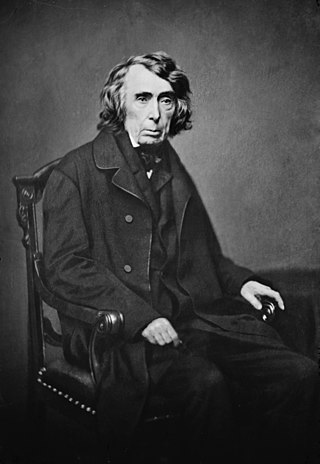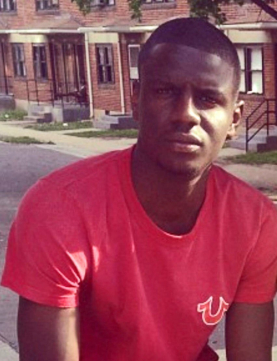
"Don't ask, don't tell" (DADT) was the official United States policy on military service of non-heterosexual people. Instituted during the Clinton administration, the policy was issued under Department of Defense Directive 1304.26 on December 21, 1993, and was in effect from February 28, 1994, until September 20, 2011. The policy prohibited military personnel from discriminating against or harassing closeted homosexual or bisexual service members or applicants, while barring openly gay, lesbian, or bisexual persons from military service. This relaxation of legal restrictions on service by gays and lesbians in the armed forces was mandated by Public Law 103–160, which was signed November 30, 1993. The policy prohibited people who "demonstrate a propensity or intent to engage in homosexual acts" from serving in the armed forces of the United States, because their presence "would create an unacceptable risk to the high standards of morale, good order and discipline, and unit cohesion that are the essence of military capability".
A writ of mandamus is a judicial remedy in the English and American common law system consisting of a court order that commands a government official or entity to perform an act it is legally required to perform as part of its official duties, or to refrain from performing an act the law forbids it from doing. Writs of mandamus are usually used in situations where a government official has failed to act as legally required or has taken a legally prohibited action. They cannot be issued to compel an authority to do something against the law. For example, it cannot be used to force a lower court to take a specific action on applications that have been made, but if the court refuses to rule one way or the other, then a mandamus can be used to order the court to rule on the applications.

Ex parte Merryman, 17 F. Cas. 144 (No. 9487), was a controversial U.S. federal court case that arose out of the American Civil War. It was a test of the authority of the President to suspend "the privilege of the writ of habeas corpus" under the Constitution's Suspension Clause, when Congress was in recess and therefore unavailable to do so itself. More generally, the case raised questions about the ability of the executive branch to decline to enforce judicial decisions when the executive believes them to be erroneous and harmful to its own legal powers.

Abd al-Rahim Hussein Muhammed Abdu al-Nashiri is a Saudi Arabian citizen alleged to be the mastermind of the bombing of USS Cole and other maritime attacks. He is alleged to have headed al-Qaeda operations in the Persian Gulf and the Gulf states prior to his capture in November 2002 by the CIA's Special Activities Division.
William Alexander White is an American neo-Nazi. He was the former leader of the American National Socialist Workers' Party, and former administrator of Overthrow.com, a now-defunct website dedicated to racist and antisemitic content.
Puerto Rico v. Branstad, 483 U.S. 219 (1987), was a case decided by the Supreme Court of the United States that ruled unanimously that federal courts have the power to enforce extraditions based on the Extradition Clause of Article Four of the United States Constitution. The decision overruled a 1861 decision in Kentucky v. Dennison, which had made federal courts powerless to order governors of other U.S. states to fulfill their obligations in the Extradition Clause.

Sholom Mordechai Rubashkin is the former CEO of Agriprocessors, a now-bankrupt kosher slaughterhouse and meat packing plant in Postville, Iowa, formerly owned by his father, Aaron Rubashkin. During his time as CEO of the plant, Agriprocessors grew into one of the nation's largest kosher meat producers, but was also cited for issues involving animal cruelty, food safety, environmental safety, child labor, and hiring undocumented immigrants.
Fong Foo v. United States, 369 U.S. 141 (1962), was a Supreme Court ruling that upheld the protection from double jeopardy by the federal government. While the protection from double jeopardy did not get incorporated to apply to the state governments until 1969, the Supreme Court ruled that the Fifth Amendment to the United States Constitution prevented the Federal Government from bringing a defendant to trial twice for the same charge. In this case, the court ruled that despite the error of the District Judge, the 5th Amendment protected the defendants from facing a second trial for the same charge.

John Gleeson is an American attorney who served as a United States district judge of the United States District Court for the Eastern District of New York. He is a member of the United States Sentencing Commission.

Emmet Gael Sullivan is an American attorney and jurist serving as a senior United States district judge of the United States District Court for the District of Columbia.

Edward Francis Harrington is an American lawyer who serves as a senior United States district judge of the United States District Court for the District of Massachusetts.

Log Cabin Republicans v. United States, 658 F.3d 1162 was a federal lawsuit challenging the constitutionality of 10 U.S.C. § 654, commonly known as don't ask, don't tell (DADT), which, prior to its repeal, excluded homosexuals from openly serving in the United States military. The Log Cabin Republicans (LCR), an organization composed of lesbian, gay, bisexual, and transgender (LGBT) Republicans, brought the suit on behalf of LCR members who serve or served in the military and were subject to DADT.
GetEQUAL was, from 2010 to 2018, an American non-profit organization and advocacy group which advocates for LGBTQ social and political equality through confrontational but non-violent direct action.

Dan Choi is an American former infantry officer in the United States Army who served in combat in the Iraq War during 2006–2007. He became an LGBT rights activist following his coming out on The Rachel Maddow Show in March 2009 and publicly challenged America's Don't Ask, Don't Tell policy, which forbade lesbian, gay and bisexual (LGB) service members from serving openly.
Mohamed Alanssi is a Yemeni national who has worked as an informant for the FBI in over 20 terrorism-related federal prosecutions, starting in November 2001. Alanssi set himself on fire in front of the White House on November 15, 2004. A note he wrote to his FBI handler at the time said he had to travel to Yemen to see his sick wife before he testified in a major terrorism prosecution in 2005. Alanssi was the sole informant in that case, which involved various counts of material support of terrorism against Mohammed Ali Hassan Al-Moayad and his assistant. At the trial, Alanssi was not called by the prosecution, but appeared as a hostile witness for Al-Moayad's defense.
Mohamad Anas Haitham Soueid is a Syrian-born naturalized United States citizen and a resident of Leesburg, Virginia who was indicted on espionage-related charges by federal prosecutors in October 2011. Soueid, 47 years old, is accused of passing information about Syrian American protesters in the United States to the government of Syrian President Bashar al-Assad, who are thought to have arrested and tortured numerous Syrian political refugees' family members and associates living in Syria.

The Taney Court heard thirty criminal law cases, approximately one per year. Notable cases include Prigg v. Pennsylvania (1842), United States v. Rogers (1846), Ableman v. Booth (1858), Ex parte Vallandigham (1861), and United States v. Jackalow (1862).

Carmen Milagros Ortiz is an attorney, college instructor, and former United States Attorney for the District of Massachusetts.

On April 12, 2015, Freddie Carlos Gray Jr., a 25-year-old African American, was arrested by the Baltimore Police Department for possession of a knife. While in police custody, Gray sustained fatal injuries and was taken to the R Adams Cowley Shock Trauma Center. Gray's death on April 19, 2015, was ascribed to injuries to his cervical spinal cord.

Neomi Jehangir Rao is an American jurist and legal scholar serving since 2019 as a U.S. circuit judge of the U.S. Court of Appeals for the District of Columbia Circuit. She was appointed by President Donald Trump, having served in the Trump Administration from 2017 to 2019 as Administrator of the Office of Information and Regulatory Affairs. She was previously a professor of law at George Mason University's Antonin Scalia Law School.














